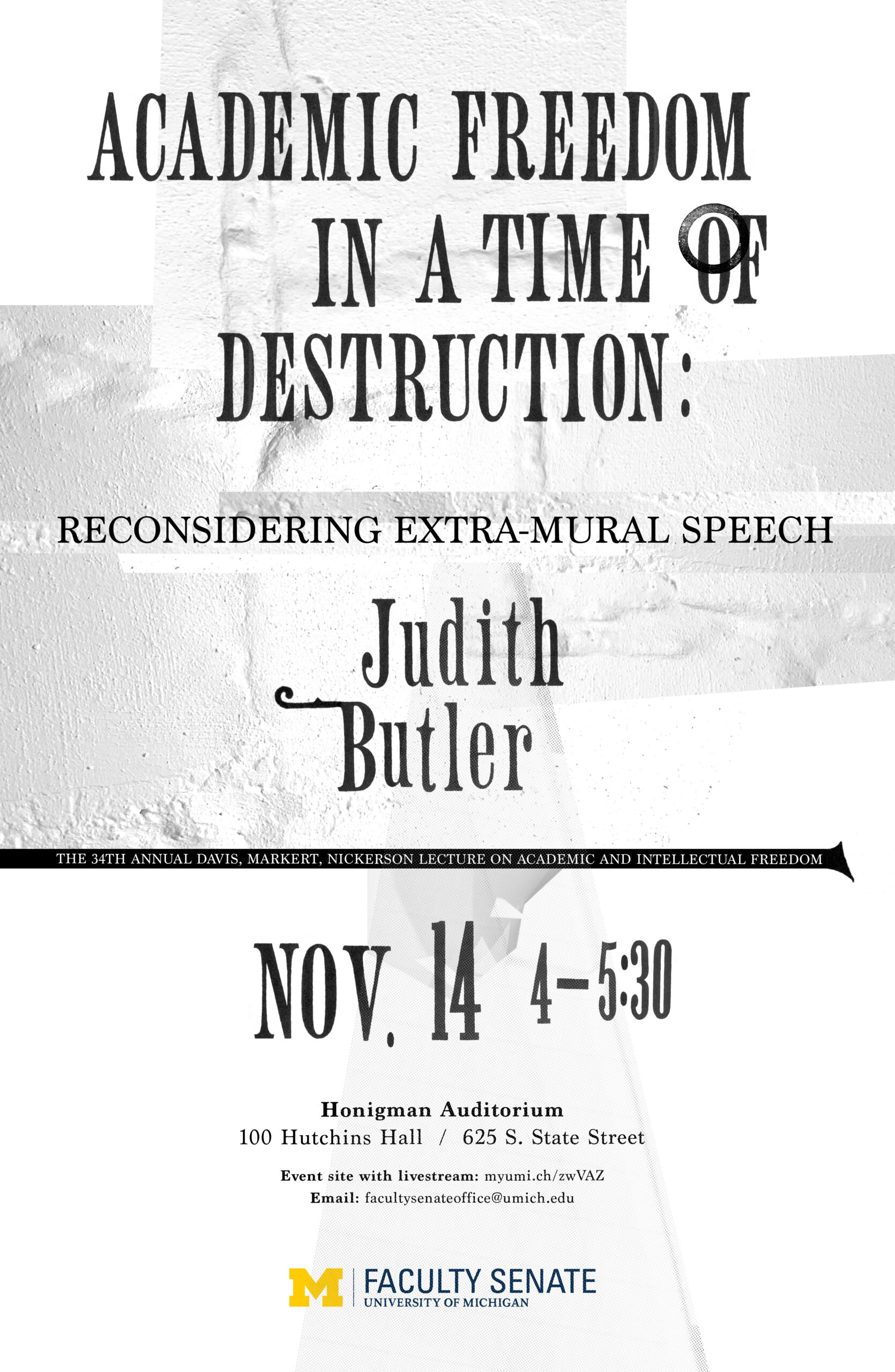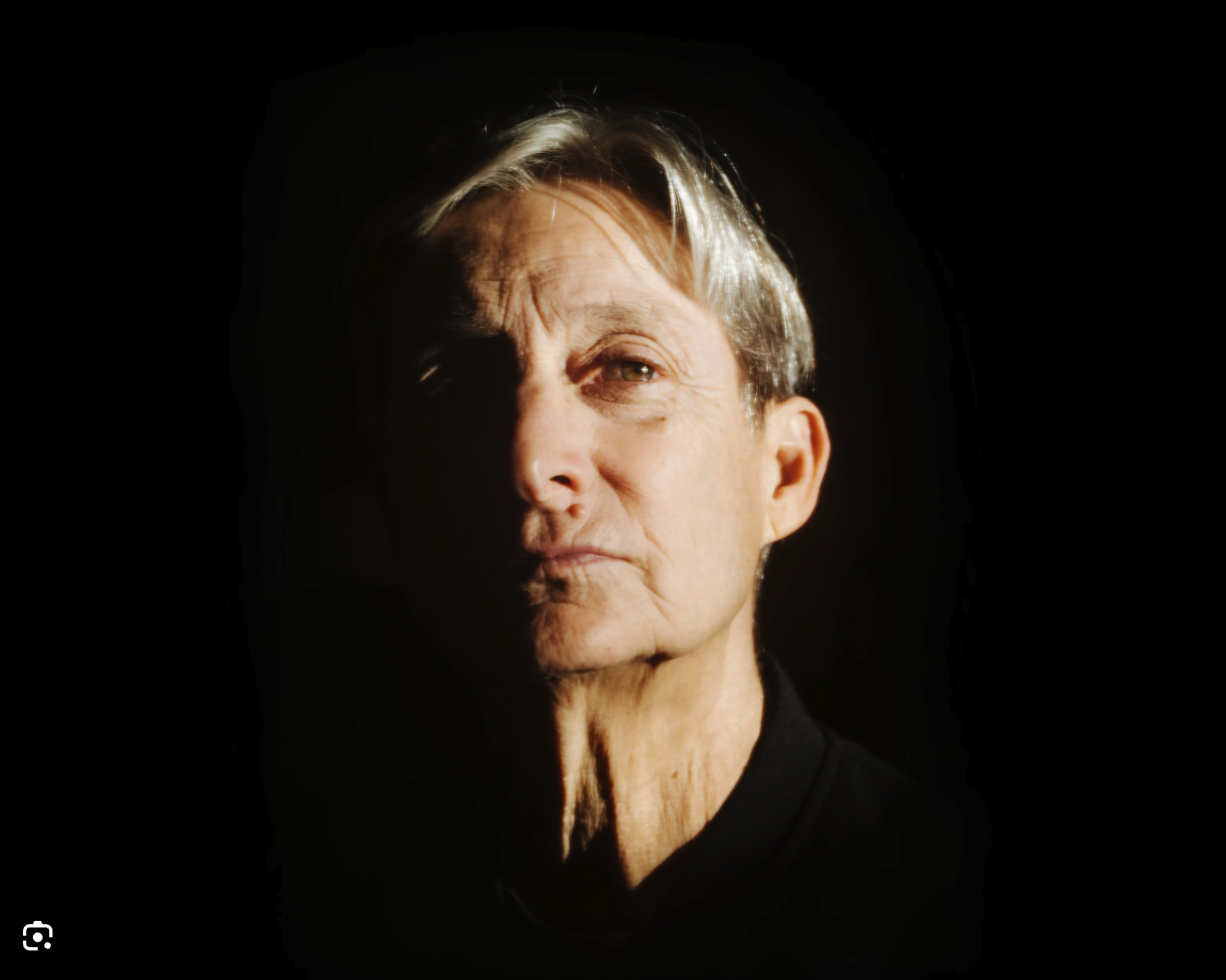Lecture Abstract
Academic freedom includes protections for faculty against reprisal for “extra-mural speech,” but how do we decide what kind of speech is “extra-mural”? Some scholars argue that any protections afforded extramural speech by institutions of higher education are already covered by constitutional rights of free speech. But is there really no distinction? This lecture will consider how we conceive of extra-mural speech, and how the distinction between intra- and extra-mural has become increasingly difficult to draw. Considering the figure of the “wall” that separates the academy from public life, a number of challenges emerge: is the academy meant to serve public debate and, if so, in what way? Is the classroom supposed to be “neutral” on questions of shared public concern? Does academic freedom belong only to faculty, or does it presuppose open debate on campus that includes students and staff? Finally, what does academic freedom in its many senses presume about the enduring character of universities? If universities are defunded, privatized, or destroyed in war, have the necessary conditions of academic freedom also been destroyed. Or is there, as is argued in this lecture, an extra-institutional right to education that makes itself known in the midst of destruction times.
Speakers
Rebekah Modrak, SACUA Chair, Professor of Art and Design, Penny W Stamps School of Art and Design
Provost Laurie McCauley, William K and Mary Anne Najjar Professor of Periodontics, Provost and Executive Vice President for Academic Affairs, Office of the Provost and Executive Vice President for Academic Affairs, Professor of Dentistry, Department of Periodontics and Oral Medicine, School of Dentistry and Professor of Pathology, Medical School
Gayle Rubin, Associate Professor, Anthropology and Women’s Studies
Judith Butler, Distinguished Professor in the Graduate School, University of California, Berkeley
Program
A program for the event is availabe here.
Additional Events
Alongside the DMN Lecture, two supplemental events will be held alongside this event, including:
Speaker Biography
Judith Butler is Distinguished Professor in the Graduate School and formerly the Maxine Elliot Chair in the Department of Comparative Literature and the Program of Critical Theory at the University of California, Berkeley. They received their Ph.D. in Philosophy from Yale University in 1984. They are the author of several books: Subjects of Desire: Hegelian Reflections in Twentieth-Century France (1987), Gender Trouble: Feminism and the Subversion of Identity (1990), Bodies That Matter: On the Discursive Limits of “Sex” (1993), The Psychic Life of Power: Theories of Subjection (1997), Excitable Speech (1997), Antigone’s Claim: Kinship Between Life and Death (2000), Precarious Life: Powers of Violence and Mourning (2004); Undoing Gender (2004), Who Sings the Nation-State?: Language, Politics, Belonging (with Gayatri Chakravorty Spivak in 2008), Frames of War: When Is Life Grievable? (2009), Is Critique Secular? (co-written with Talal Asad, Wendy Brown, and Saba Mahmood, 2009), Sois Mon Corps (2011), co-authored with Catherine Malabou, Parting Ways: Jewishness and the Critique of Zionism (2012), Dispossession: The Performative in the Political (co-authored with Athena Athanasiou 2013), Senses of the Subject and Notes Toward a Performative Theory of Assembly (2015), and a co-edited volume, Vulnerability in Resistance, with Duke University Press (2015), The Force of Nonviolence 2020, and What World is This? A Pandemic Phenomenology (2022). Their most recent book is Who’s Afraid of Gender (2024). Their books have been translated into more than twenty-seven languages.



